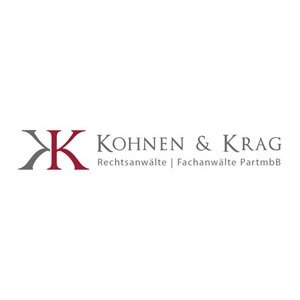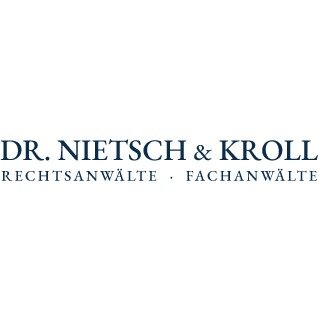Best Inheritance Law Lawyers in Hamburg
Share your needs with us, get contacted by law firms.
Free. Takes 2 min.
List of the best lawyers in Hamburg, Germany
1. About Inheritance Law in Hamburg, Germany
Inheritance law in Hamburg follows the same national framework as the rest of Germany. It regulates how assets pass after a person dies, who is entitled to a share, and how disputes are resolved. The Bürgerliches Gesetzbuch (BGB) provides the core rules for wills, heirs, and the Pflichtteil, or minimum inheritance shares for certain relatives. In Hamburg, as elsewhere, the estate is primarily managed through the local probate system via the Nachlassgericht.
The Nachlassgericht in Hamburg handles requests for Erbscheine (heir certificates) and oversees administration when there is ambiguity about heirs, a contested will, or an insolvent estate. Notaries also play a central role, especially in creating public wills or Erbverträge that govern future transfers. Understanding whether to use a will, a public testament, or an Erbvertrag is essential to avoiding costly disputes later. Hamburg residents should anticipate that real property transfers often require notarial involvement and then registration in the land register.
For cross-border estates involving assets in Hamburg or heirs abroad, European Union rules coordinate conflict of laws and recognition of wills. This can affect which country's law applies to certain aspects of the inheritance and how foreign documents are treated. In all cases, accurate documentation and timely action help prevent delays and reduce costs.
The German inheritance system relies on clear documentation of heirs and the valid form of testamentary instruments to avoid longest possible delays in settlement.
Key sources for the legal framework are the national texts rather than Hamburg-specific statutes. The BGB governs core Erbrecht concepts, while ErbStG covers inheritance taxes. Practical steps in Hamburg also depend on local court practices, such as how Erbscheine are issued and how assets are verified. For people new to the topic, seeking legal advice from a Hamburg-based Rechtsanwalt (attorney) can clarify options and obligations early in the process.
Practical guidance and official texts are accessible through established government portals. For example, the Justizportal provides overview material on inheritance procedures, and Gesetze-im-Internet hosts the current versions of the BGB and ErbStG. These sources help residents verify requirements for wills, testaments, and tax implications as they plan an estate strategy. Official sources: Justizportal, Gesetze im Internet
2. Why You May Need a Lawyer
Resolving an inheritance issue in Hamburg often requires professional legal support to avoid delays, tax pitfalls, and family conflict. Below are concrete scenarios that commonly arise in Hamburg and nearby Schleswig-Holstein and Lower Saxony where residents face similar processes.
- Contesting a will in Hamburg after a parent dies and several siblings disagree on the distribution of assets. A lawyer can assess validity, form requirements, and the impact of potential coercion or fraud claims under the BGB.
- Applying for an Erbschein to prove who the rightful heirs are when a bank or property transfer is blocked. An attorney guides the application to the Nachlassgericht and helps assemble required documents.
- Managing the estate as an executor or administrator where debts outweigh assets, or where creditors claim more than the heirs expect. Legal counsel can coordinate debt settlement and asset liquidation in compliance with German law.
- Handling a real estate transfer in Hamburg where a deceased owner bequeaths property to a child or spouse. A lawyer coordinates notarial steps and ensures the Grundbuch (land register) entry is correct.
- Dealing with a contested Erbvertrag or a civil-law challenge to a public will. A Rechtsanwalt can evaluate formality requirements, missing signatures, or alleged duress.
- Addressing cross-border heirs or assets, including German and foreign real estate. A Hamburg lawyer familiar with EU conflict-of-law rules can harmonize different jurisdictions and tax rules.
In each scenario, engaging a lawyer who specializes in inheritance matters helps you understand timing, procedural steps, and costs. An experienced attorney can prepare, file, and monitor applications with the Nachlassgericht and coordinate with notaries, financial institutions, and tax authorities. This reduces the risk of mistakes that could delay the estate settlement or trigger additional taxes.
3. Local Laws Overview
The legal framework for inheritance in Hamburg is primarily national, with local administration handling procedures. The main sources you should consult include the BGB for inheritance rights, and the ErbStG for taxes. In Hamburg, your interactions with the Nachlassgericht and local notaries will follow federal rules adapted to municipal practice.
The following laws and regulations are central to Hamburg inheritance matters:
- Bürgerliches Gesetzbuch (BGB) - Erbrecht - Governs wills, heirs, Pflichtteil, and inheritance procedures. See the current text for details on how intestate succession is determined and how a will must be structured to be valid. BGB on Gesetze im Internet
- Erbschaftsteuer- und Schenkungsteuergesetz (ErbStG) - Regulates inheritance tax and gift tax related to inherited assets. Tax obligations depend on the relationship to the deceased, the value of the estate, and applicable exemptions. BZSt - Federal Central Tax Office
- Beurkundungsgesetz (BeurkG) and related notarial rules - Determines when a will or Erbvertrag must be notarized and the formality requirements for authentic instruments. Notarization often matters for real property transfers and Erbverträge. BeurkG on Gesetze im Internet
Effective dates and recent adjustments vary by statute. The BGB has governed inheritance law since its introduction in 1900, and its provisions continue to be amended through federal legislation. The ErbStG has undergone revisions to reflect changes in tax policy and exemptions. For the most up-to-date text, refer to official online sources such as Justizportal and Gesetze-im-Internet. Official sources: Justizportal, Gesetze-im-Internet, BZSt
4. Frequently Asked Questions
What is an Erbschein and when do I need it?
An Erbschein is a certificate proving who is entitled to the estate. You typically need it to access bank accounts, sell property, or register assets. If the will is clear and uncontested, banking institutions may accept other proof, but many institutions require a formal Erbschein.
How do I apply for an Erbschein in Hamburg?
Submit an application to the local Nachlassgericht with documents confirming the family relationship, death certificate, and the will if present. A lawyer can assemble the package, file it, and track the process until you receive the Erbschein.
When does a will need to be notarized in Hamburg?
Public wills and Erbverträge generally require notarization. A private handwritten will may be valid, but formal requirements are strict and notarization protects against later challenges.
Where can I find the current laws governing Erbrecht in Hamburg?
Current texts are available on official portals such as Gesetze-im-Internet and Justizportal. These sources host the latest BGB provisions and inheritance guidance for Germany and Hamburg specifically.
Why should I hire a Hamburg inheritance lawyer for a contested will?
A lawyer can assess validity, guide you through the court process, and represent you at hearings. They can also negotiate settlements, interpret complex testament clauses, and help preserve family relationships where possible.
Can I contest a will in Hamburg and what is the deadline?
Yes, you can challenge a will under certain grounds such as coercion, fraud, or invalid form. Deadlines vary by case and court, so consult a lawyer promptly to protect your rights.
Should I be concerned about Pflichtteil claims?
Pflichtteil guarantees a minimum inheritance portion for certain relatives. If you are excluded or feel the share is too small, a lawyer can evaluate eligibility and remedies under the BGB.
Do I need a lawyer to apply for an Erbschein, or can I do it myself?
You can apply yourself, but a lawyer often makes the process faster and reduces the chance of a rejected application due to missing documents or technical errors.
Is inheritance tax a concern in Hamburg and who pays it?
Inheritance tax applies to beneficiaries based on relationship to the deceased and estate value. In many cases spouses and children have favorable exemptions, but tax planning with a lawyer or tax advisor is wise.
How long does probate typically take in Hamburg?
Timelines vary by estate size and complexity. A straightforward case with clear heirs might settle in a few months, while complex estates could take 12 months or longer if disputes arise.
What is the difference between a will and an Erbvertrag?
A will is a unilateral document specifying who inherits. An Erbvertrag is a binding contract between parties that can restrict future changes, typically requiring notarization.
Can cross-border heirs complicate Hamburg probate?
Yes. Foreign assets and heirs bring extra steps, including recognition of foreign wills and coordination under EU rules. A lawyer with cross-border experience helps manage this complexity.
5. Additional Resources
Use these official resources to verify information and access current legal texts and guidance related to inheritance law in Germany and Hamburg.
- Justizportal - Official gateway for information about German courts, probate procedures, and the administration of inheritance matters. Justizportal
- Gesetze im Internet - Official repository of federal laws, including the BGB and ErbStG. Gesetze im Internet
- Bundeszentralamt für Steuern (BZSt) - Provides guidance on inheritance tax, exemptions, and filing requirements at the federal level. BZSt
6. Next Steps
- Clarify your goals and collect key documents. Identify if you are an heir, executor, or potential beneficiary of a will or Erbvertrag. Allocate 1-2 weeks to assemble death certificate, will, and asset list.
- Consult a Hamburg-based inheritance lawyer for a preliminary assessment. Schedule an initial meeting within 2-3 weeks to discuss your case, possible strategies, and expected costs.
- Obtain a rough estimate of costs and timelines. Ask about hourly rates, total case estimates, and potential contingencies. Expect a written engagement letter before work begins.
- Prepare and file documents for the Erbschein or probate process. Your attorney can help assemble birth certificates, marriage certificates, will copies, and property documents.
- Coordinate with notaries for wills and property transfers. If real estate is involved, plan for notarization and land register entries as required by Hamburg procedures.
- Address tax considerations early. Consult the attorney or a tax advisor about Erbschaftsteuer and timing of tax submissions to minimize penalties.
- Monitor progress and adjust strategy as needed. Stay informed about court deadlines and respond promptly to requests from the Nachlassgericht or tax authorities.
Lawzana helps you find the best lawyers and law firms in Hamburg through a curated and pre-screened list of qualified legal professionals. Our platform offers rankings and detailed profiles of attorneys and law firms, allowing you to compare based on practice areas, including Inheritance Law, experience, and client feedback.
Each profile includes a description of the firm's areas of practice, client reviews, team members and partners, year of establishment, spoken languages, office locations, contact information, social media presence, and any published articles or resources. Most firms on our platform speak English and are experienced in both local and international legal matters.
Get a quote from top-rated law firms in Hamburg, Germany — quickly, securely, and without unnecessary hassle.
Disclaimer:
The information provided on this page is for general informational purposes only and does not constitute legal advice. While we strive to ensure the accuracy and relevance of the content, legal information may change over time, and interpretations of the law can vary. You should always consult with a qualified legal professional for advice specific to your situation.
We disclaim all liability for actions taken or not taken based on the content of this page. If you believe any information is incorrect or outdated, please contact us, and we will review and update it where appropriate.











